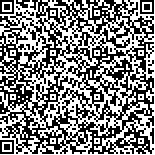| 本文已被:浏览 1194次 下载 1025次 |

码上扫一扫! |
| 白术多糖对LPS诱导雏鹅脾脏免疫损伤的保护作用 |
| 郁浩胜,谢凌峰,陈天琪,李冰心,曹楠,付新亮,许丹宁,田允波,李婉雁 |
|
|
| (仲恺农业工程学院动物科技学院) |
|
| 摘要: |
| 目前鹅的养殖模式仍然以半旱养为主,对水体的依赖形成高温高湿的环境进一步促进细菌的繁殖使体内LPS累积,导致鹅的脾脏免疫功能受损。白术多糖具有调节机体免疫功能的作用,因此本研究旨在进一步探索白术多糖(PAMK)对脂多糖(LPS)处理雏鹅脾脏免疫损伤的保护作用。 本试验选用24只马岗鹅,随机分为四组,每组6个重复。对照组(CON组)和脂多糖组(LPS组)正常饲喂基础日粮,白术多糖组(PAMK组)和白术多糖加脂多糖组(PAMK+LPS组)在饲喂的日粮中添加400 mg/kg的PAMK。在24和26日龄时,CON组和PAMK组的雏鹅腹腔注射0.5 mL生理盐水;LPS组和PAMK+LPS组腹腔注射2 mg/kg?BW LPS溶液,第26日龄注射一小时后采集脾脏。HE结果显示,与CON组相比,LPS组的脾脏细胞排列疏松、细胞萎缩,形态各异,细胞数目减少并伴有凋亡现象 。,动脉周围淋巴鞘面积显著缩小;与LPS组相比,LPS+PAMK组的细胞排列紧密,细胞形态与对照组接近;此外,转录因子(LPS组GATA-3表达水平显著低于CON组和PAMK组,但LPS+PAMK组与LPS组相比,GATA-3表达水平显著升高;LPS组T-bet表达水平显著低于CON组,但LPS+PAMK组与LPS组相比,T-bet表达水平显著升高),在日常饲粮中添加400 mg/kg的PAMK后发现,细胞因子及转录因子的mRNA表达水平都得到了显著恢复(P<0.05)。结果表明,在雏鹅发生炎症反应时,白术多糖能够通过调节细胞因子和转录因子的表达水平,缓解雏鹅脾脏的炎症反应,起到一定保护作用。 |
| 关键词: 白术多糖 脂多糖 脾脏 免疫损伤 |
| DOI: |
| 投稿时间:2023-04-17修订日期:2023-10-19 |
| 基金项目:国家自然科学基金-青年科学基金项目(No.32102747) |
|
| Protective Effect of PAMK on Spleen Immune Damage Induced by LPS in Goslings |
|
| (Zhongkai University of agriculture and engineering Collge of Animal Science and Technology) |
| Abstract: |
| At present, semi-arid is still the main culture mode of geese, which is dependent on water so high temperature and high humidity environment will further promote bacterial reproduction and accumulation of LPS in body, resulting in impaired spleen immune function of geese. Polysaccharide of Atractylodes macrocephala Koidz (PAMK) can modulate the immune function of the body, so this study is to explore the protective effect of PAMK on the immune injury of gosling spleen induced by lipopolysaccharide (LPS). 24 1-day-old Magang goslings were randomly divided into 4 groups with 6 replicates per group. The control group (CON group) and LPS group were fed the basal diet normally. PAMK group, PAMK and LPS co-treatment group (PAMK+LPS group) were fed diets supplemented with 400 mg/kg PAMK. At 24 and 26 days of age, the CON group and PAMK group were intraperitoneally injected with 0.5 mL normal saline, and the LPS Group and PAMK + LPS group were intraperitoneally injected with 2 mg/kg?BW LPS solution. The results of HE showed that compared with CON group, the spleen cells in LPS group were arranged loosely, the cells were damaged and atrophied, the morphology was different, the number of cells was decreased and apoptosis was accompanied. Cells arranged loosely, cells atrophied, and the area of periarterial lymphatic sheath decreased significantly Compared with LPS group, the cells in LPS+PAMK group were closely arranged and the cell morphology was similar to that in control group. In addition, the expression level of GATA-3 in LPS group was significantly lower than that in CON and PAMK groups, but the expression level of GATA-3 in LPS+PAMK group was significantly higher than that in LPS group. The expression level of T-bet in LPS group was significantly lower than that in CON group, but the expression level of T-bet in LPS+PAMK group was significantly higher than that in LPS group. The mRNA expression levels of cytokines and transcription factors were significantly recovered after PAMK was added in daily diet (P < 0.05). The results show that PAMK can relieve the inflammatory response of spleen by regulating the expression levels of cytokines and transcription factors, and play a protective role in the inflammatory response of goslings. |
| Key words: Polysaccharide of Atractylodes macrocephala Koidz (PAMK) Lipopolysaccharide spleen immune damage |